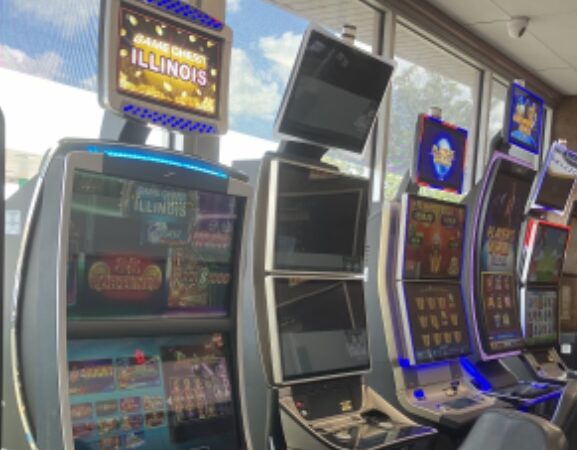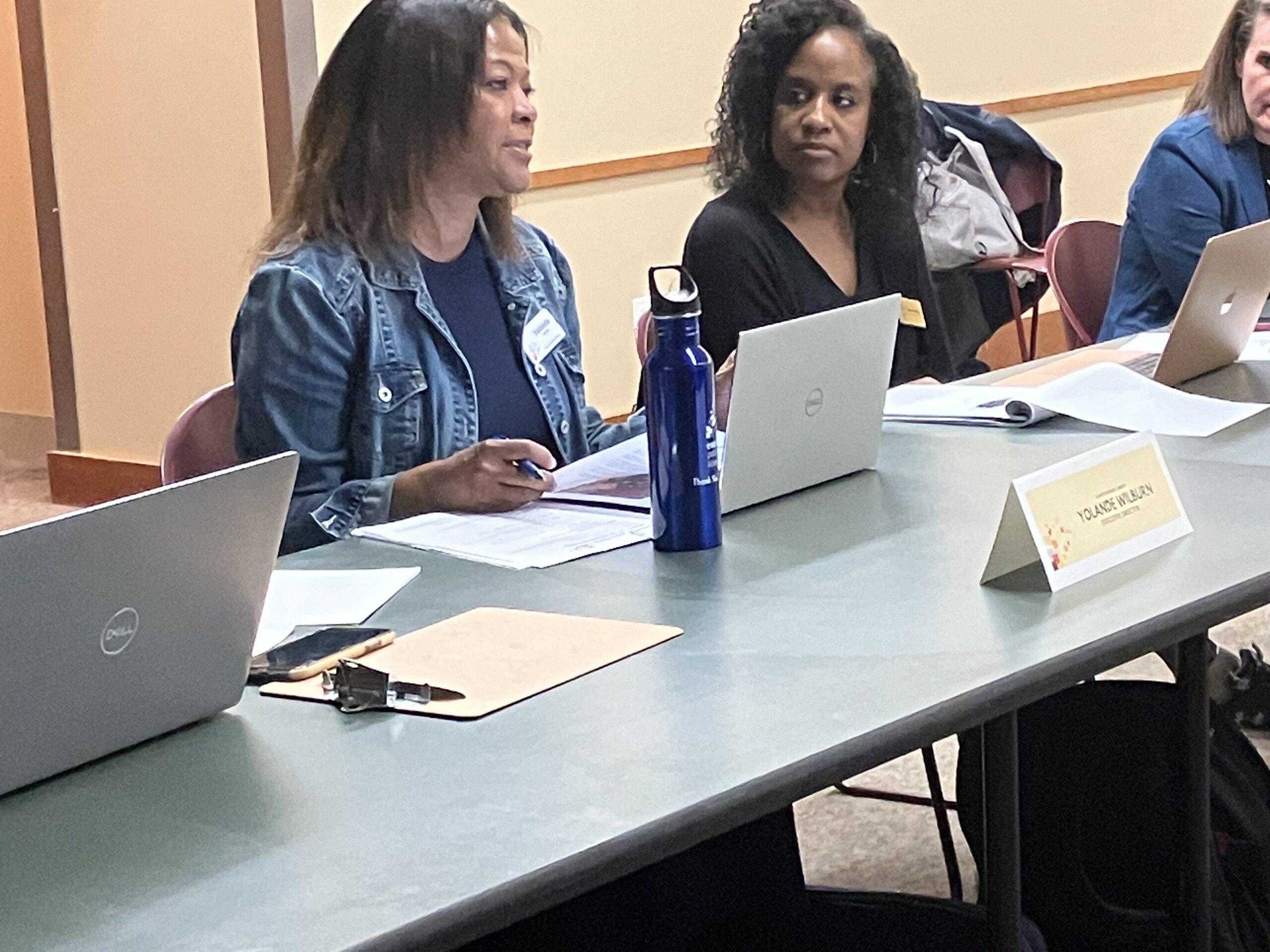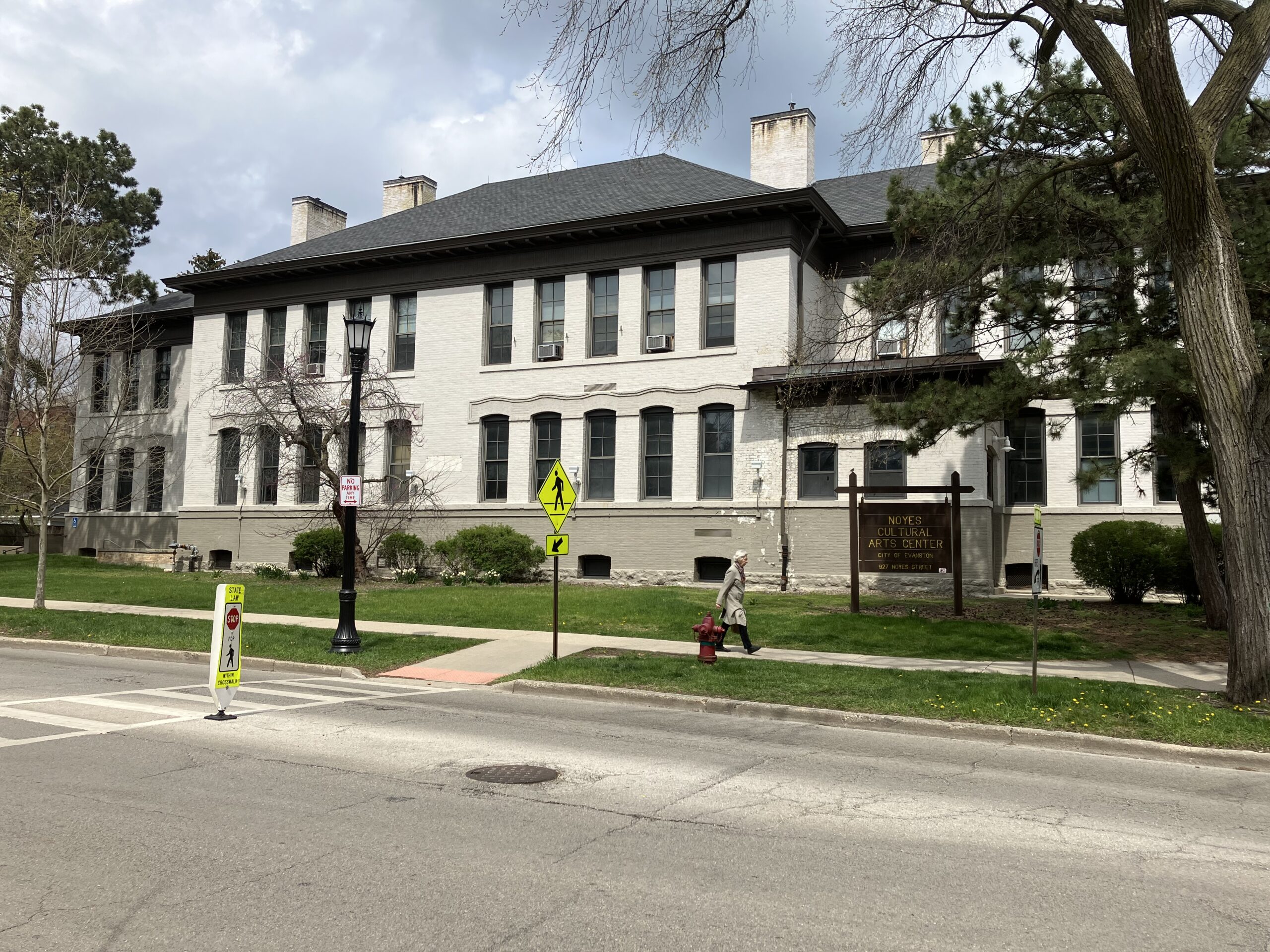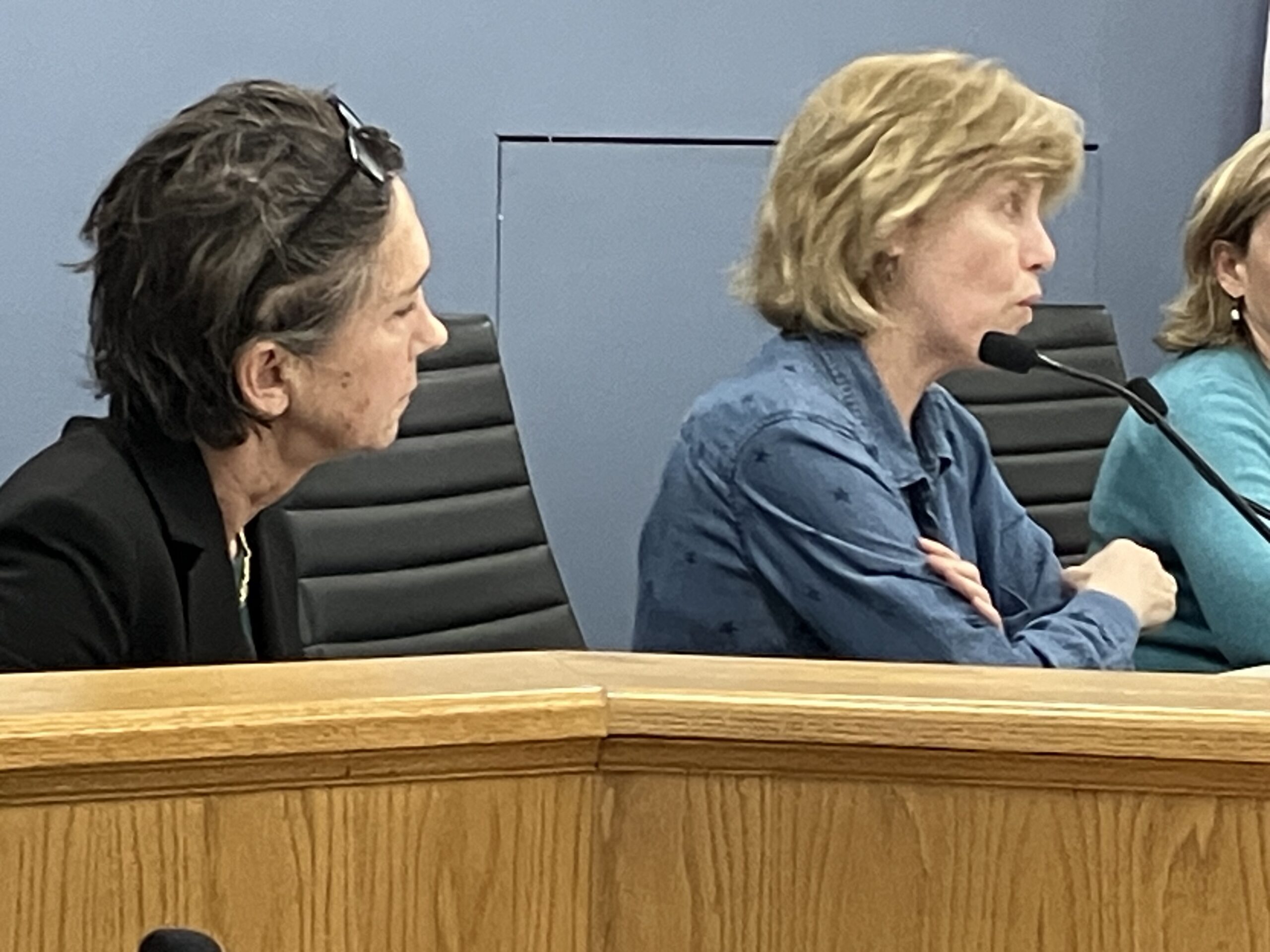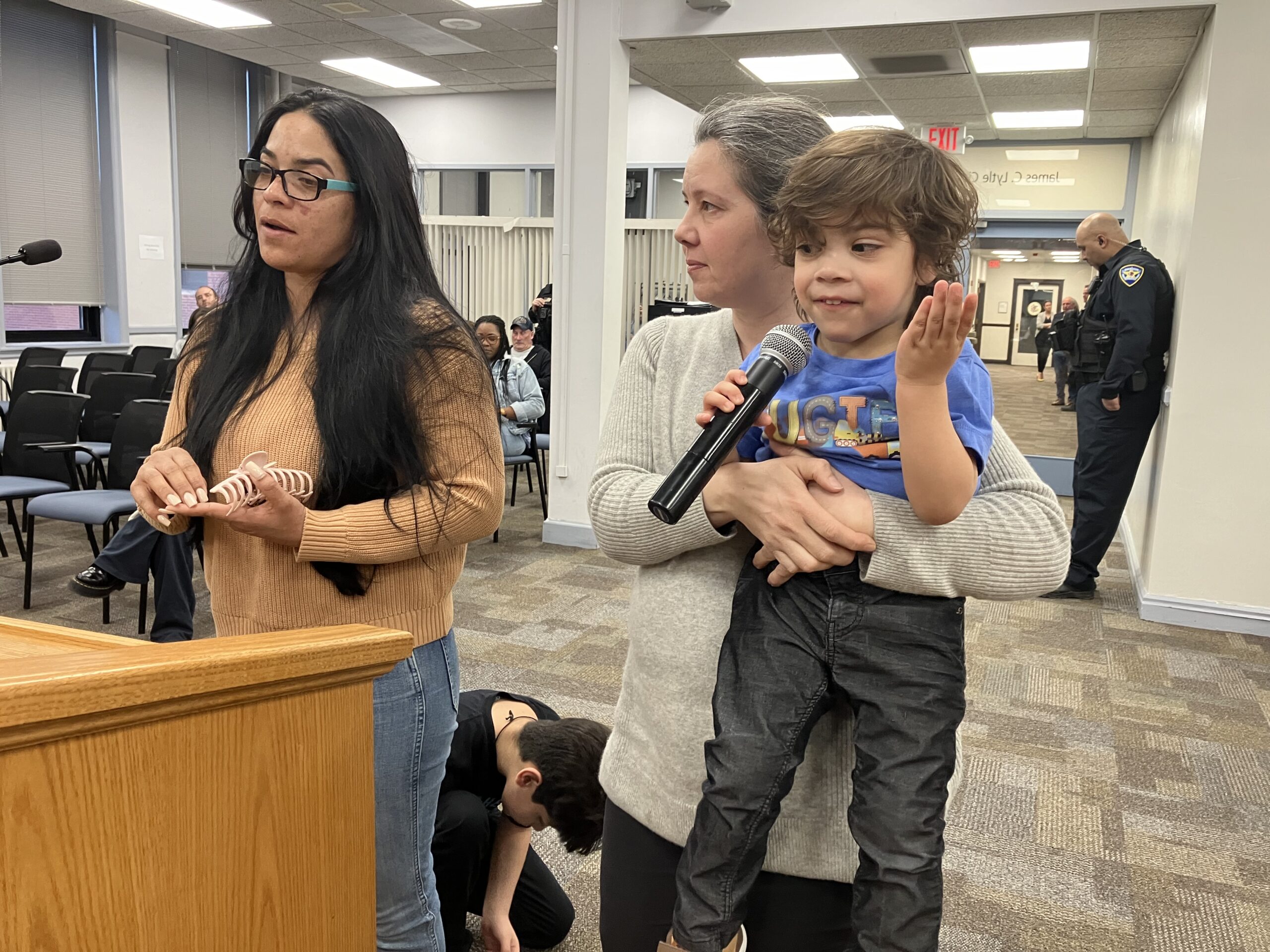By Bob Seidenberg
rseiden914@gmail.com
A city committee began filling in the blank spaces in an ordinance that would permit video gambling in Evanston for the first time, opening the way for officials to tap into the fast-growing revenue source.
A video “gaming cafe” located inside a gas station in Cicero. Under the proposed ordinance discussed Monday, Evanston would not allow businesses with gambling as the primary focus. Credit: Bob Seidenberg
At the Council’s Human Services Committee Monday night, committee members agreed on some key provisions, including limiting the number of establishments to be licensed at nine.
Under the proposal, video gambling would be an accessory feature to a restaurant and not permitted at a stand-alone “gaming cafe” with alcohol served, as found in some other communities.
Committee members held off on setting a figure for license fees. Rather, staff was instructed “to look at other cities and essentially bring back the “highest” fee possible, said Council Member Devon Reid (8th Ward), chairing the meeting.
Reid made the original proposal last Mayfor the city to consider a video gambling ordinance, noting that legalizing the activity could create an important source of revenue.
“You know, our dollars are potentially leaving Evanston or certainly leaving Evanston because we don’t have this,” he told committee members at the time, “and we could keep more of the money local.”
Meanwhile, gambling has expanded rapidly throughout the state, city Policy Coordinator Alison Leipsiger noted in a memo to the committee.
In 2022, the state had more than 45,000 video gambling terminals, she reported. In 2023, $32.6 billion was spent at the terminals, with a net taxable income of $2.9 billion. According to state reports, that resulted in tax revenue of $836 million for the state and $144 million for municipalities and counties.
Fraternal, veterans groups exempt from local ban
The memo also took note of another pressure point. Since July 2022, fraternal and veterans organizations have been allowed to apply directly to the Illinois Gaming Board for a license to allow video gambling, “even within a community that has prohibited video gaming.”
“And so with that, I think it makes sense for us to adopt this ordinance to create a level playing field,” Reid said. “A number of our small businesses have signed on to this.”
At Monday’s session, committee members began filling in some of the blank spaces in an ordinance that staff drew up that would regulate the operation, licensing and administration of video gambling.
Under the measure:
- “An establishment would have to be in operation at the location for at least a year at the time an application for video gaming is filed.”
- “The mayor would be the approving authority for all licenses. If a licensee or prospective licensee disagrees with any action taken by the Mayor, an appeal could be made directly to the City Council.”
- A statement would be required affirming “that no manager or owner with more than 5% interest in establishment has even been convicted of a felony, a gambling offense or crime of moral turpitude.”
- Applicants must supply “a floor plan, detailing the overall layout of the establishment, including the location and count of dining seats.”
Not just a drinking place with gambling
Fifth Ward Council Member Bobby Burns noted that “in some places you can just have video gaming and maybe alcohol sales, or something like that. But in Evanston we’re doing it differently where … at least as proposed, [it] would need to be in a restaurant.”
The committee turned to Robert “Rob” Bady, a 22-year Evanston resident and former Ridgeville Park District commissioner to address that point.
Bady is business development manager for Universal Gaming Group, based in Addison, which has roughly 200 video gambling locations in Illinois.
What Burns was referring to was “gaming cafes,” Bady told committee members, “and just being a citizen here for a long time, I don’t think that’s appropriate here.”
In his company’s setup, video gambling is viewed as an accessory, Bady said. “This is not the feature. I’m not just setting up [a] drinking place with gambling.”
Bady pointed to the Firehouse Grill, 750 Chicago Ave., and Ridgeville Tavern, 1520 Sherman Ave., whose owners were in the audience. Those two businesses already have non-gambling video games that patrons can play.
Once video gaming is set up, “you go there for your beverage, you get your favorite meal and you might want to play machines there,” Bady said. The games, he said, then serve not as the main feature but as an accessory in those establishments.
‘Las Vegas is doing very, very well’
In her memo, Leipsiger reported how the proceeds from video gambling are apportioned: 65.15% goes to the venue and terminal operators; 29% to the state; 5% to the municipality and 0.85% to the Illinois Gaming Board.
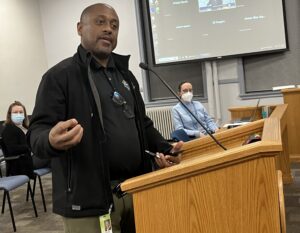
Bady, responding to a question from Council Member Eleanor Revelle (7th Ward) explained that proceeds are basically divided into three parts. “One third of that goes to that location [the establishment], one third of that goes to the terminal operator and a third goes to the state as a tax,” he said, adding that the state then remits a 5% share to the municipality.
He said the gambling machines are the same as used in Las Vegas, with the odds of winning set by an algorithm that favors the house.
Revelle asked what percentage people playing the machines get back on what they bet. She said she wasn’t convinced that’s the way the city should raise its revenues.
“I’m not an odds guy,” Bady said to her question about percentages, “but people like to hit the buttons. Las Vegas is doing very, very well.”
At Monday’s meeting the item was restricted to discussion. City staff is set to bring back the proposed ordinance with the changes suggested by committee members to next month’s committee meeting.
